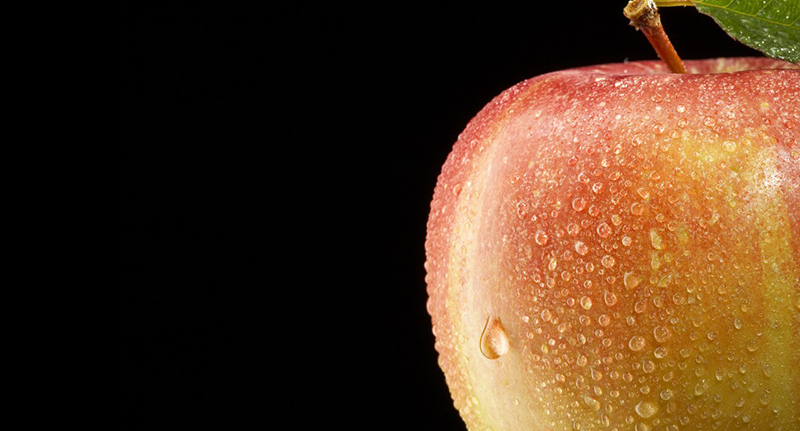11 Things That Can Make Allergies Worse

Want to make allergy season more bearable? Start by avoiding these allergy aggravators.
When your nose fills and your eyes run, you know where to place blame — on the ragweed, dust, mold, or other allergen that triggered your reaction. Yet many everyday items, from fruit to clothing, alcohol to scented candles, can also make your allergies flare.
Here are 11 allergy aggravators to avoid this season.
1. Stress
Stress doesn’t cause allergies, but it could make your symptoms worse. A study in Annals of Allergy, Asthma & Immunology finds people who are stressed have more allergy flares. When you’re under stress, your body releases cortisol and other hormones that set off your body’s inflammatory response to an allergen. Living with a constant stuffed nose and watery eyes can put you in a foul mood, which could make your symptoms even worse. “While alleviating stress won’t cure allergies, it may help decrease episodes of intense symptoms,” says lead study author and allergist, Amber Patterson, MD.
2. Alcohol
Allergy sufferers might want to pass on the glass of wine or beer with dinner. Alcohol, especially red wine, can trigger symptoms like a stuffed nose or skin reaction. Fermented drinks like wine and beer contain histamine, the same chemical your body releases when you react to pollen or pet dander. Sauerkraut, smoked meats and fish, and cheeses like Swiss and Gouda are other foods on the histamine watch list.
3. Smoke
You already know smoking causes cancer and lung disease, but were you aware that puffing on cigarettes can also exacerbate seasonal allergies? The chemicals in cigarettes act on the immune system, making you even more sensitive to pollen, mold spores, and other allergens. Even if you don’t light up yourself, being in the same room with a smoker can inflame your allergy symptoms.
4. Scented products
Perfumes, scented candles, and fragranced laundry products cover up unpleasant odors and add a burst of freshness to the air and your clothes. Yet research finds nearly a third of Americans are sensitive to the chemicals in these and other scented products. If you’re among them, breathing in or touching products containing fragrances and perfumes can set off eye and nose irritation, and leave red, itchy bumps on your skin. You’re better off using unscented products, especially during allergy season.
5. Chlorine
If you’ve spent a lot of time in your neighborhood swimming pool, you know how harsh the chlorine can be to your eyes and skin. People with allergies are even more sensitive to this chemical. Frequent contact with chlorine — say, if you swim daily laps or work as a lifeguard — can irritate the respiratory tract enough to trigger allergies. Whenever you swim or use chlorine bleach, keep the area well ventilated to reduce your exposure.
6. Skipping or taking the wrong medicines
Your local drugstore is stocked with an arsenal of over-the-counter and prescription medicines to combat allergy symptoms. Antihistamines, decongestants, and steroid nasal sprays can all help you feel better, but they work only if you use them correctly. Start taking medicine before allergy season begins, and see an allergist to make sure you’re using the right drugs for your symptoms.
7. House plants
You close your windows to keep plant pollen outside, but what about the plants inside your home? You might be sensitive to them, too. Indoor plants release pollen, plus they collect mold and dust, which can also set off allergy symptoms. Indoor plants known to trigger allergies include Ficus, yucca, ivy, and palm trees. Limit the number of plants in your home, and keep any plants you do have in well-ventilated areas. Check the leaves and soil often for mold, and wipe away any mold that collects.
8. Fruits and vegetables
An apple or orange might seem harmless, but these fruits contain pollen, which can trigger an allergic reaction in certain people. Sometimes that reaction can even be life threatening. Carrots, celery, kiwi, peaches, tomatoes, zucchini, and melon are just a few of the fruits and vegetables that contribute to a condition known as oral allergy syndrome.
9. Pollution
Scientists have recently discovered that pollutants like nitrogen dioxide and ozone, which have been linked to climate change, boost the potency of airborne allergens. “Our research is showing that chemical modifications of allergenic proteins may play an important role in the increasing prevalence of allergies worldwide,” said Christopher Kampf, PhD, of the Max Planck Institute in Germany. Though you can’t always avoid pollution outside, you can keep it out of your home by installing air filters.
10. Clothing
If your skin turns red and itches after you wear certain outfits, you’re likely sensitive to a dye or chemical in the fabric, or to the metal in its zipper or buckle. This sensitivity causes a skin condition called contact dermatitis, which you can prevent by avoiding the offending chemical or metal.
11. Weather
Warm, sunny days are ideal for spending time outside. Unfortunately, they’re also ideal conditions for allergens. Plants release more pollen on hot, sunny days than on cooler, cloudy days. And while a soaking rain will wash away lingering pollen, a brief thunderstorm will only stir it up in the air. On nice days when pollen counts are high, stay indoors with the windows closed and the air conditioner on to reduce your exposure.
Updated:
March 30, 2020
Reviewed By:
Janet O’Dell, RN